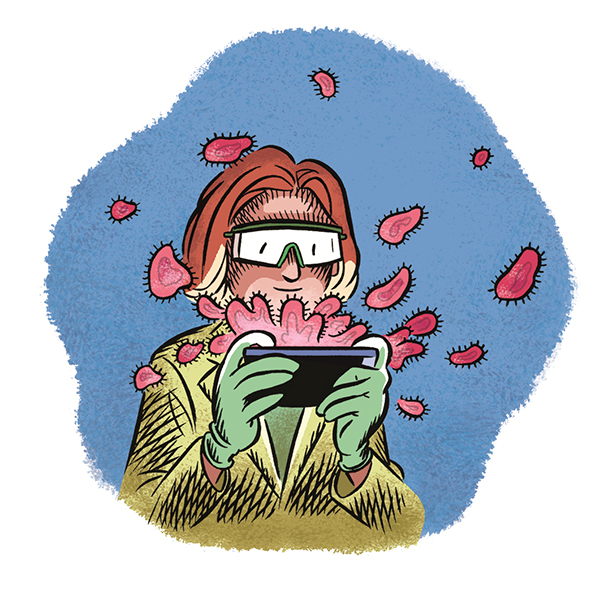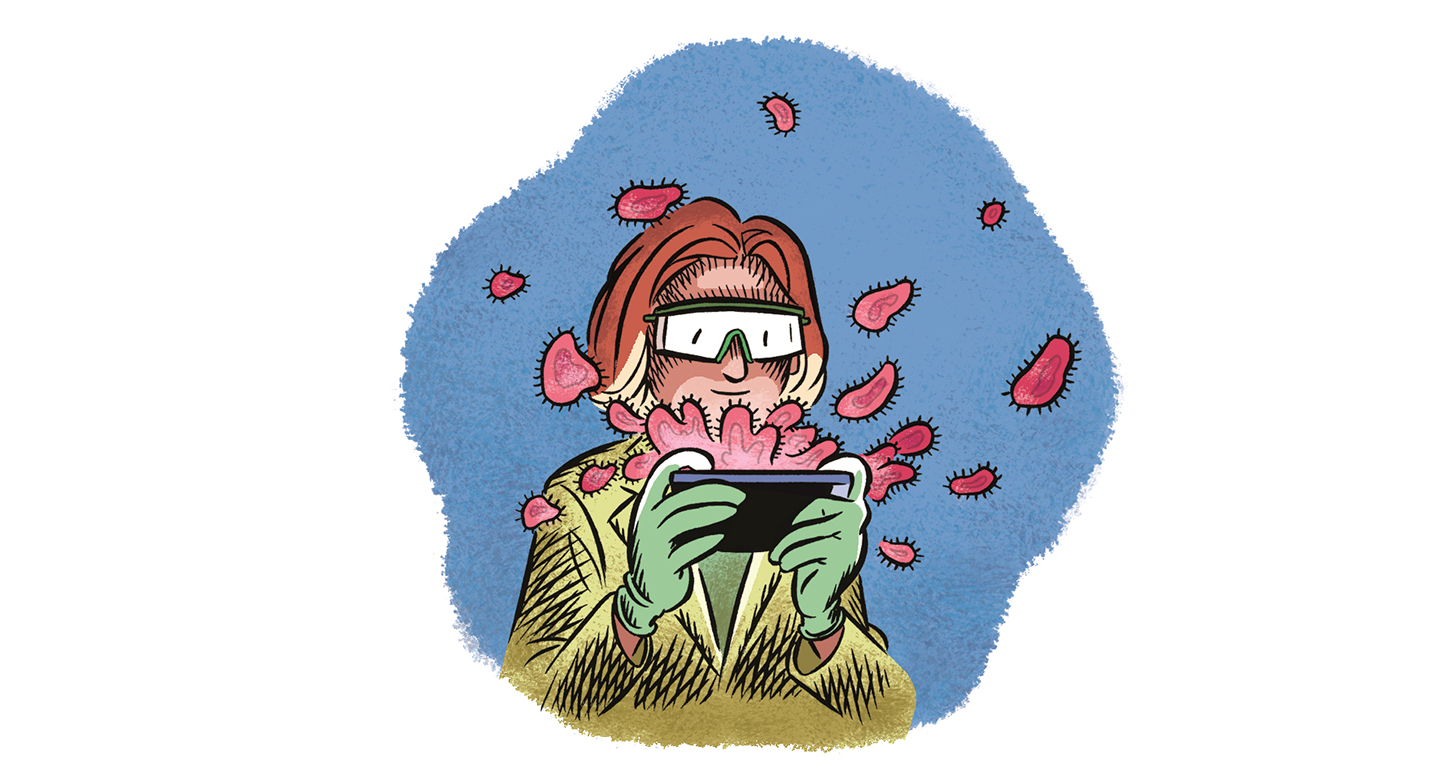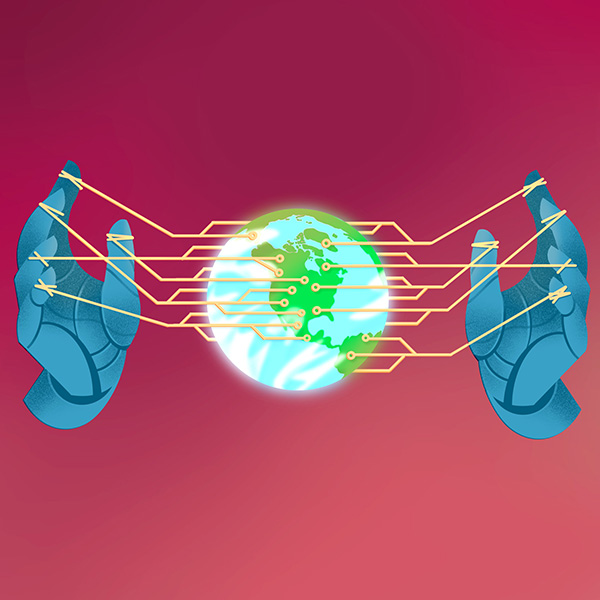Trillions of microbes call your gut home. These microbes are members of hundreds of different species. What’s more, your microbe population is uniquely diverse: Census data from your microbiome is different from mine, and that of your friends and family.
A few microbes cause disease and many are necessary for our wellbeing, but on balance, ”we have no idea about the relationship between these microbes and our lifestyles or health,” says Jérôme Waldispühl, an associate professor of computer science. There’s some sort of relationship between the two – studies are clear about that, says Waldispühl – but the details are hazy.
He has developed a game for smart phones and tablets to help the researchers at the American Gut Project process heaps of data on the microbial populations of 10,000 people, collected from samples of their stool.
The game is called Colony B, and the premise is simple: shown screens of dots, circle the ones that appear in a cluster. Those dots represent people, and those that are clustered together have similar bacteria hanging out in their gut.
Sorting the data helps researchers make associations between what kinds of bacteria are common in healthy people, and which are found in those with problems like irritable bowel syndrome. For players, it’s a great way to keep your hands busy while you’re on the subway or watching TV — and it’s for a good cause. “You are playing for something useful, it’s not just wasting your time,” says Waldispühl.
This isn’t Waldispühl’s first foray into games that harness people-power: in 2010, he released a game called Phylo, in which participants helped scientists sequence DNA. Phylo was a runaway hit – Waldispühl estimates that more than 300,000 users have played the game.
Though Phlyo benefitted from a flurry of media coverage — the concept was a little more novel then — Waldispühl is putting stock in games sticking around as a tool for research. He teaches a computer science class ,“An Introduction to Crowdsourcing and Human-Computation Techniques”, that focuses on just that.
These games are important for researchers because they accomplish what computers alone cannot. A computer could not, in fact, play Colony B. There’s just no mathematical algorithm that can reliably identify clusters of dots, which can be spaced at varying intervals, arranged in different patterns, says Waldispühl. But humans are great at it.
So playing Colony B offers an additional satisfaction: We live in a world where artificial intelligence not only beats world champions at chess, but drives motor vehicles. The game is a small reminder that code can’t replace human creativity just yet.




